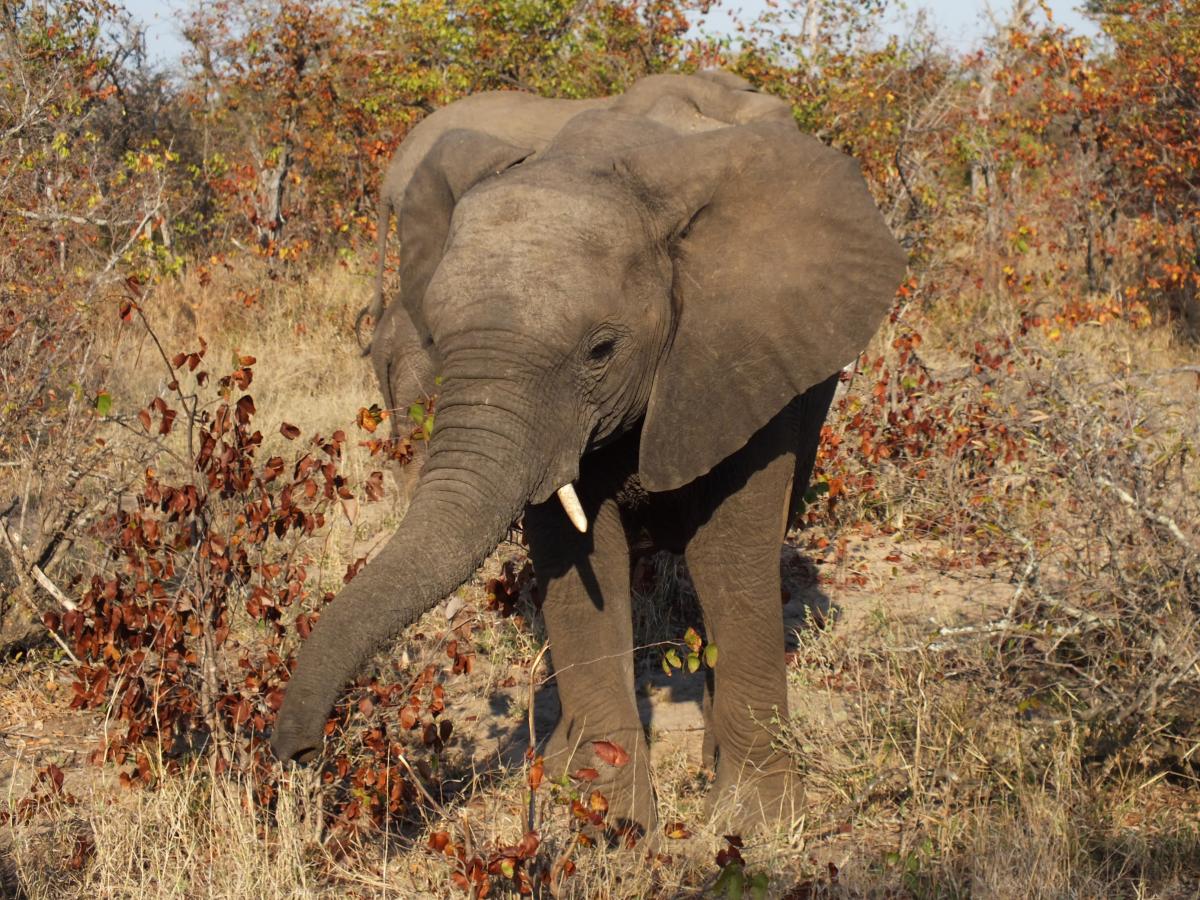Climate change is hitting species hard – we should keep an eye on the most vulnerable
Climate change is already affecting many threatened birds and mammals, with some species much more vulnerable to rising temperatures than others, according to a recent study co-authored by IUCN SSC Climate Change Specialist Group (IUCN SSC CCSG) members. To prevent further extinctions we need to keep a closer eye on the most vulnerable species – such as those with highly specialised diets – writes David Bickford from the IUCN SSC CCSG.

Elephants are among the threatened species groups most affected by climate change
Photo: © Jennifer Cachola CC BY-ND 2.0
The study, Species’ traits influenced their response to recent climate change, looked at the effects of climate change on mammals and birds as documented in published literature – 70 studies covering 120 mammal species and 66 reporting on 569 bird species. In particular, it analysed mammal and bird species already threatened with extinction – in the Vulnerable, Endangered, or Critically Endangered categories of The IUCN Red List of Threatened Species™.
It found that almost half (47%) of threatened land mammals and almost a quarter (23.4%) of all threatened birds may already have been negatively impacted by climate change. These findings are sobering, especially given that the impacts of climate change are not likely to abate, nor are species likely to adapt to them in realistic ecological time scales.
Not all species are equal in the face of climate change, however – some birds and mammals are more vulnerable than others, the study found. Mammals with more specialised diets are more likely to suffer from the consequences of climate change, for example. Similarly, species inhabiting high altitudes or colder parts of the world have less of a chance to move to cooler areas.
To ensure we are doing all that we can to prevent further extinctions we must concentrate our monitoring efforts on these most vulnerable species. Perhaps more importantly, we need studies that assess the impact of climate change for taxa and regions that are poorly studied, such as the centres of biodiversity closer to the equator.
Primates, elephants and marsupials – including kangaroos, wallabies and koalas – are the mammal species groups found to be most threatened by a changing climate. The slow reproductive rates of primates and elephants further increase their vulnerability. As for birds, aquatic species – including shorebirds, ducks and geese – were found to be particularly affected by rising temperatures, which lead to habitat loss and fragmentation as well as harmful algal blooms.
Some species have actually had positive responses to climate change so far, such as increasing populations or expanding ranges. Rodents and insectivores are two such groups of mammals, found to have benefited from recent climatic changes. But we do not know what the long-term consequences will be, nor do we fully understand the overall effects of climate change on entire ecosystems. And while beneficial effects of climate change for some species from the temperate zone have been observed, the general trend across the range of endangered species in this study is not good by any measure.
There are ecological complexities that make generalisations inaccurate at large scales. Indeed, responses to climate change are not homogenous across all living organisms. However, these kinds of uncertainties should not prevent us from using the evidence we do have to prevent more extinctions from climate change and other anthropogenic factors – and that evidence is becoming increasingly alarming.
This article first appeared on the IUCN Huffington Post blog.



